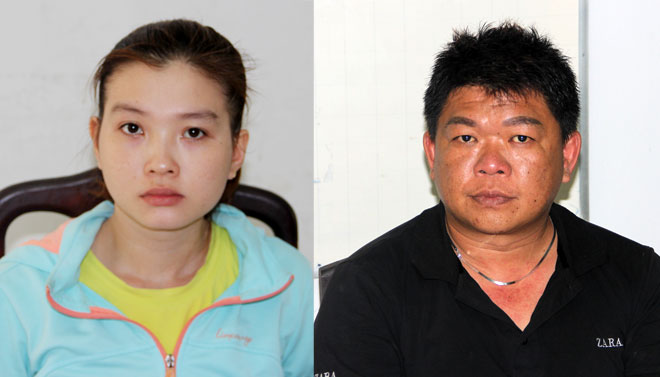Experienced policeman elaborates on tricks of human traffickers
PSNews-Senior Colonel Tran Van Luan, Chief of the Tay Ninh Provincial Criminal Police Office, who had participated in cracking down on many human trafficking rings, said that the situation of illegally transporting Vietnamese people to other countries is very complex.
- Cooperation against human trafficking between Vietnam - Cambodia
- Vietnam co-chairs int’l seminar on fighting human trafficking
The initial targets of human traffickers were young women from poor households in rural and border areas, who are looking for jobs and lacking knowledge. They promise they could get well-paid jobs in big cities for them. Once the victims are trapped, the traffickers will sell them to brothels or take to border areas and then sell them to overseas human traffickers, said the senior colonel.
He took the Nguyen Mai Kieu case, 28, resident of Duong Minh Chau district, Tay Ninh, as an example. Kieu has moved to China to get married to a Chinese. Kieu and her husband made deals with Chinese men who want to marry young Vietnamese women.
The couple then came to Vietnam and lured local girls, assuring that they will marry young, handsome and wealthy Chinese men. The couple also offer them a large amount of money of over VND 30 million, help them complete all necessary migrant documents and free airfares to China. As soon as their victims arrive in China, the traffickers hold their personal identification documents and sell them to disabled or poor Chinese men in rural areas. With these tricks, Kieu’s band managed to have sold 15 Vietnamese women to China.
 |
| 2 suspects heading a human trafficking ring |
Recently, police forces of Tay Ninh and Binh Phuoc arrested 22 suspects, and rescued 6 victims trafficked to Bu Dop (Binh Phuoc).
According to the Criminal Police Department, the Ministry of Public Security, many human traffickers have now associated with one another, forming closed transnational trafficking rings. Traffickers in Tay Ninh have connections with others in various provinces, including Bac Giang, Lang Son, Hanoi, HCM city and Dong Nai and even oversea criminals.
Social networks have now aided trafficking activities. Traffickers can “hunt” for “preys” online and fabricate their future prosperous lives without working, telling them about untrue success stories of Vietnamese women who have happy and well-off lives as they have married foreign men.
In certain cases, to make the story even more convincing, female traffickers act as successful Vietnamese women with their rich foreign husbands. They even offer to help their victims with necessary documents and money, and ask them to bring other relatives and neighbors with them.

